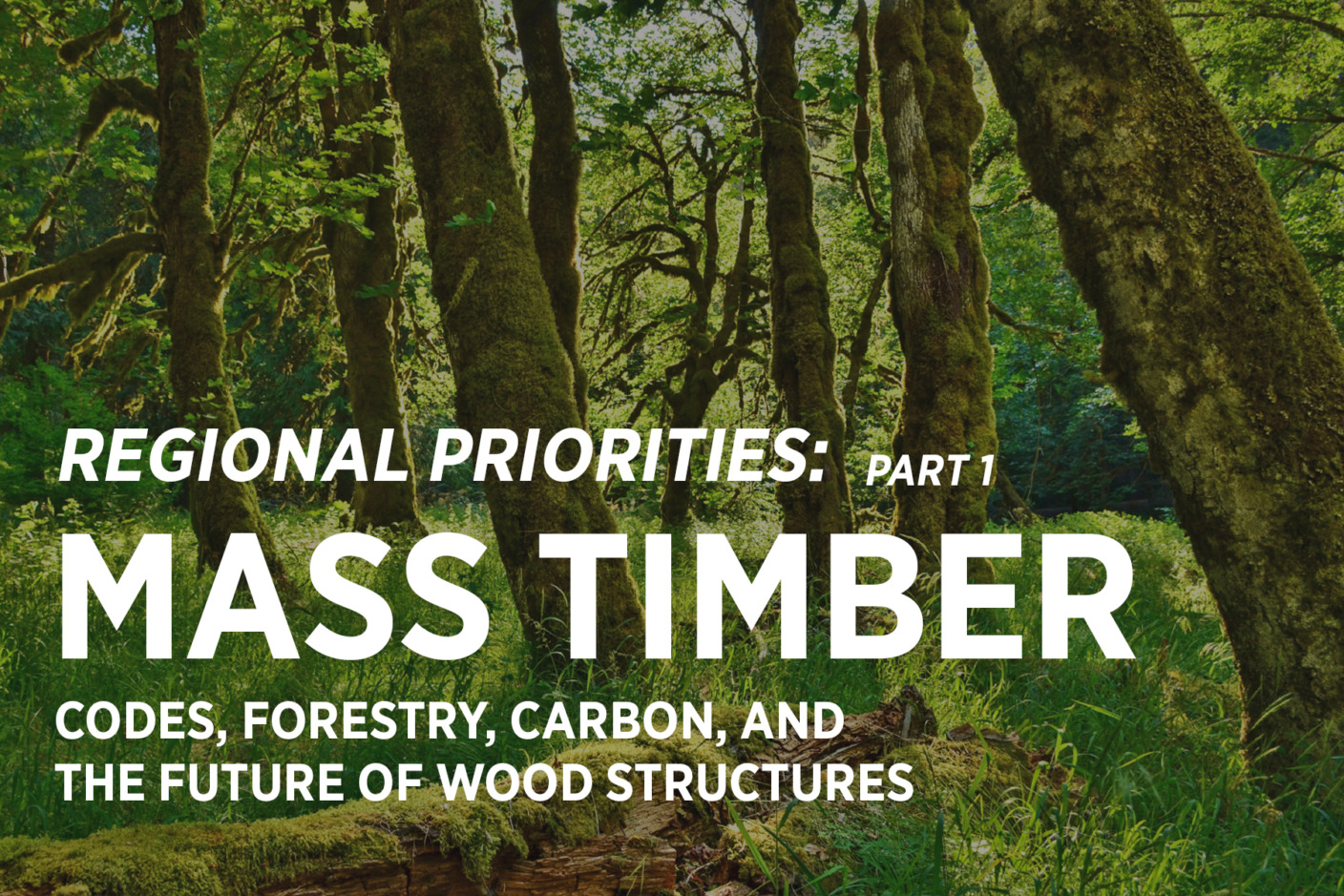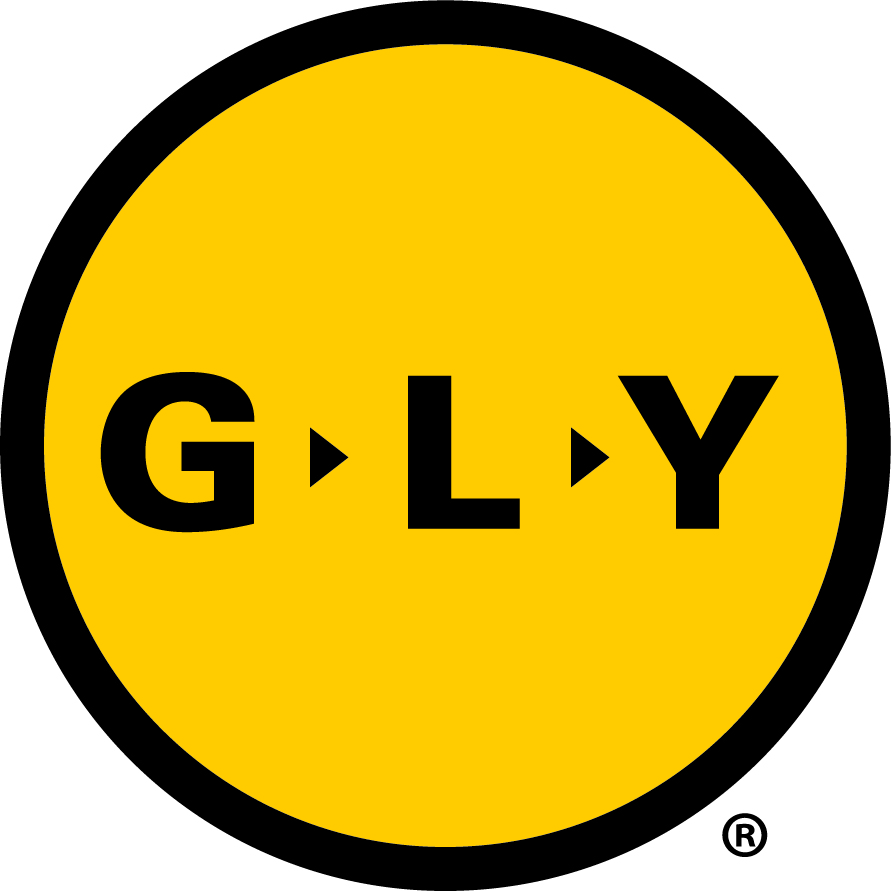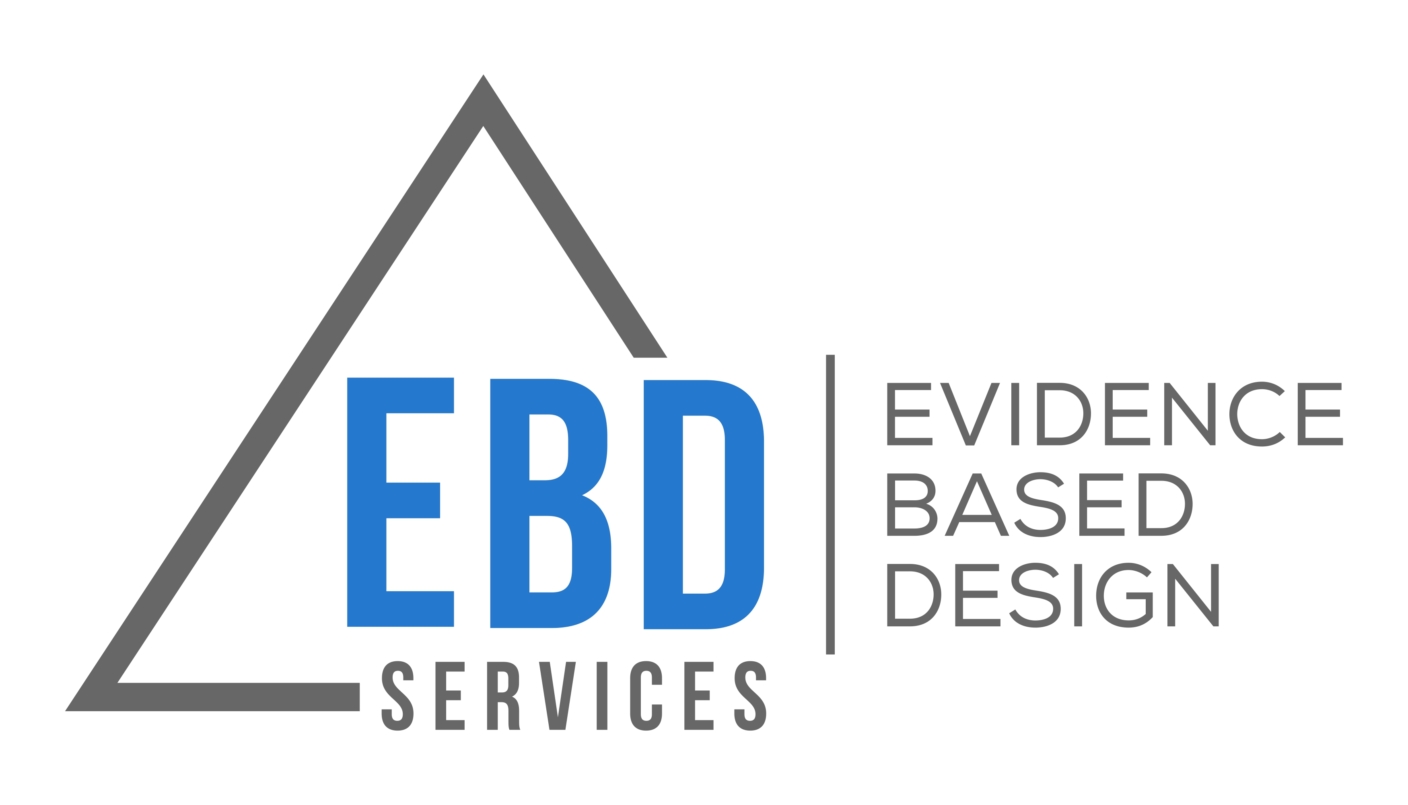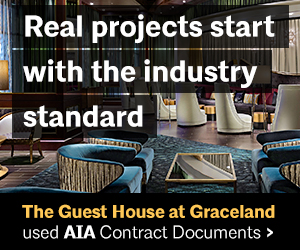
Regional Priorities Part 1 – Mass Timber with COTE

Codes, Forestry, Carbon, and The Future of Wood Structures
There is a lot of talk right now in design communities about the potential use of mass timber (such as CLT) to become a big player in an industry that is typically dominated by steel and concrete. And it’s very likely to happen. Currently, there are some building code issues that prevent a comprehensive use of mass timber for tall buildings in Washington. Many architects and engineers are trying to change this, and just recently code language was sent to the state building code department for review. Mass timber has the potential to offer a more sustainable structural solution to buildings. However, the true measure of sustainable wood products comes almost entirely from how they were harvested. To fully understand how “green” wood is, a full understanding of life cycle carbon is critical. As the use of mass timber continues to expand, what will it mean for our state forests, rural communities, and economy? Furthermore, how do we ensure that our state forests can be sustainably managed into the future to meet these demands while still protecting the places we love?
In part 1 of this special advocacy series, Committee on the Environment (COTE) has assembled a range of panelists to discuss the future of wood structures and what it means for both our environment and our economy in the State of Washington. Ultimately, we hope to give people some outlets to make more informed decisions and be better advocates for sustainable design, building codes, our Washington forests, and carbon smart policies and legislation. COTE is very excited about this event, and we hope to see you all there!
Details:
- Thursday, July 26th
- 5:00pm – 7:00pm (presentation starts at 5:30pm)
- AIA Center for Architecture and Design
- Drinks and light hors d’oeuvres provided
Moderator:
 Joseph Mayo, AIA LEED AP, Mahlum Architects
Joseph Mayo, AIA LEED AP, Mahlum Architects
Joseph Mayo is an architect in Seattle at Mahlum and author of the book Solid Wood: Mass Timber Architecture, Technology and Design, the first book devoted solely to mass timber commercial buildings. At Mahlum he advised on the first installation of Oregon-made structural cross-laminated timber (CLT) in the country at Western Oregon University’s Richard Woodcock Education Center. He recently completed a series of three CLT classroom buildings in Washington State. An advocate for the use of mass timber, Joe has worked with the City of Seattle Department of Planning and Development and Washington State non-profit Forterra to lead investigations into the use of wood that transcend current building codes. He is currently working with AIA WA Council on a state-wide building code change proposal to allow a greater use of mass timber in Washington. He has also been a jury member for wood design awards, served on local and national AIA Committees, co-authored a research paper exploring the economic viability of tall wood buildings, and assisted in teaching mass timber courses.
Panelists:
 Amie Sullivan, S.E., KPFF Consulting Engineers
Amie Sullivan, S.E., KPFF Consulting Engineers
Amie Sullivan, S.E., is a Structural Associate within the Seattle office of KPFF. With 19 years of experience she has a talent for creating delicate structures that achieve ambitious designs. With a background in luxury private residential and resort work and current focus on sustainable office campus and commercial work , she is well versed in designing with all construction materials and loves to find practical, innovative ways to bring to the warmth of wood to these structures. Amie currently sits on the AIA Seattle CLT Committee providing structural input, and is active in the AEC community promoting and presenting on mass timber and what KPFF brings being at the forefront of the CLT movement. KPFF provides structural engineering design services for a wide range of mass timber buildings utilizing Cross-Laminated Timber (CLT) and other modern timber technologies. Our firm wide CLT experience includes six completed projects with twenty more in design, including the award-winning, 12-story mass timber Framework Building. KPFF is committed to engineering opportunities that deliver excellence, empower creativity, support relationships, and help to build a sustainable future.
 Kate Simonen, AIA, SE, Assoc Professor University of Washington
Kate Simonen, AIA, SE, Assoc Professor University of Washington
Kate is founding director of the Carbon Leadership Forum, an industry-academic collaboration highlighting the carbon impact of the built environment, and developing pathways for “carbon smart” buildings to be part of the global climate solution. She is an Associate Professor at the University of Washington, a writer, and a researcher with significant professional experience in high performance building systems, seismic design and retrofitting, net-zero energy residential construction, prefabrication and collaborative practice. She authored the authoritative Life Cycle Assessment and the LCA Practice Guide and is co-chair of the Embodied Carbon Network – a global, open-access communications and action network. Current research includes evaluating structural optimization for mass timber office building construction and evaluating ‘buy clean’ policy options for Washington State.
 Matt Ojala, Director of Government Affairs, Forterra
Matt Ojala, Director of Government Affairs, Forterra
Matt Ojala develops state and federal proposals to create livable, affordable communities and conserve working farms, forests and natural lands across Washington State. His focus is to advocate and collaborate with elected officials in both our capitals, Olympia and Washington, D.C., to help build a more sustainable future. He also works closely on Forterra’s efforts to accelerate the use of cross-laminated timber throughout Washington State. Matt began his career working on political campaigns as a campaign manager and consultant throughout the Puget Sound region. He then spent five years in New York City where he worked as an aide to a New York City Council Member, and then led government and community relations efforts at a parks conservancy, Prospect Park Alliance. Matt holds a Master of Public Administration and Bachelor of Business Administration from the University of Washington.
 Hilary Franz, Commissioner of Public Lands, Washington DNR
Hilary Franz, Commissioner of Public Lands, Washington DNR
The Commissioner of Public Lands administers the state Department of Natural Resources and its 1,500 employees, directs the management of over 5.6 million acres of state-owned lands, supervises DNR’s wildfire protection on millions of acres of state and private forestlands, and chairs the state’s Board of Natural Resources and the Forest Practices Board. Prior to being elected, Commissioner Franz was executive director of Futurewise, an organization committed to implementing smart, sustainable land use and transportation policies. In this role, she brought together local governments, non-profit organizations, and citizen groups to protect the environment and grow strong local economies.












